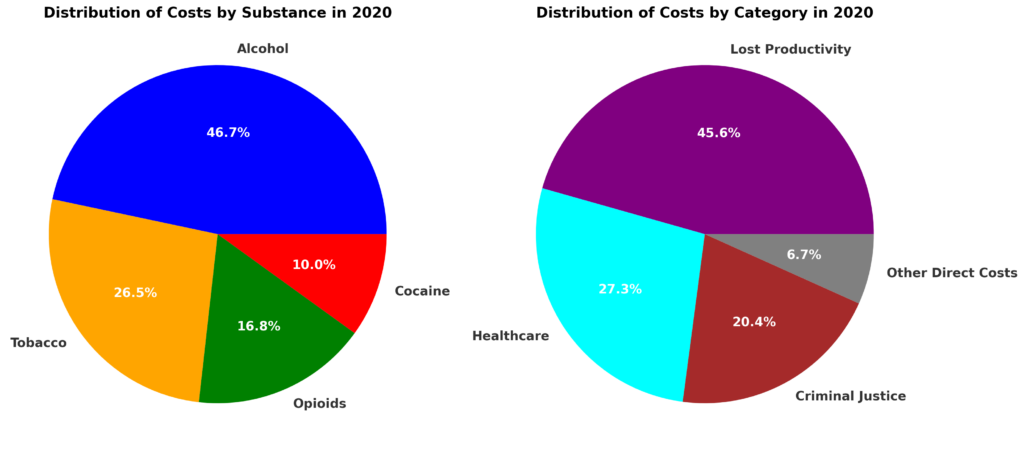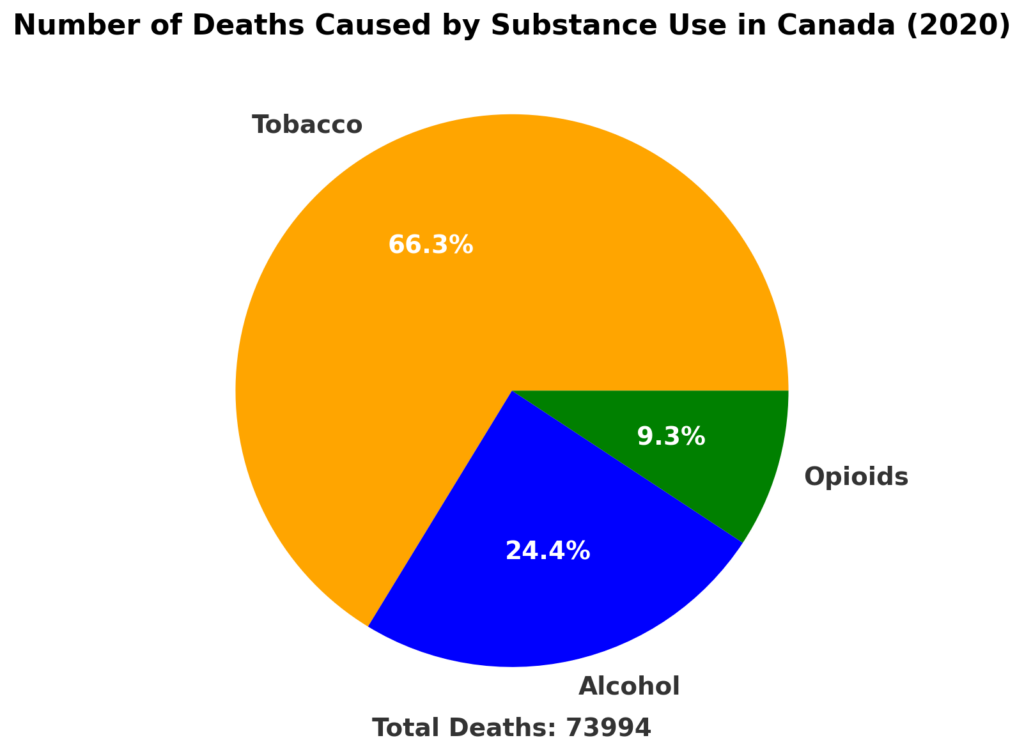Understanding Employee Rights in BC: Substance Use and Workplace Impairment
Is Bed-Based Treatment Right for You or Your Employee? Unmasking the Impact of Substance Use in the BC Workplace 🧰🏢⚒

Substance use and impairment in the workplace is a significant occupational health and safety concern, affecting both employers and employees throughout British Columbia. This issue encompasses a broad range of substances – from alcohol and prescription drugs to illicit substances. As an employee or employer, it’s important to understand your rights and responsibilities, particularly when struggling with substance use issues.
Moreover, the economic impact of substance use on the society is significant and is a matter of public concern. According to the Canadian Substance Use Costs and Harms (CSUCH) project, substance use cost the Canadian economy $49.1 billion in 2020, which amounts to $1,291 for every person in the country. This represents an increase of 11.8% from the 2007 estimate.
Employee Rights & Employer’s Obligations in BC
When it comes to substance use at work in British Columbia, understanding your legal rights as an employee and the obligations of employers is essential. This complex issue requires careful navigation to ensure that both parties meet their responsibilities. Below are key employee rights in BC and employer obligations regarding substance use.
- Legal Obligation for Accommodation: Employers in BC are legally obligated to make reasonable accommodations for employees battling drug and alcohol dependencies, unless it causes significant undue hardship to the business.
- Comprehensive Support: This accommodation could mean allowing for multiple leaves of absence for treatment, modifying work schedules, or providing access to counselling or residential treatment programs as part of the overall support system.
- Managing Relapses: Substance use disorders are complex and relapses are often part of the recovery process. Employers may have to offer renewed support for multiple relapses, provided it does not cause undue hardship.
Employee Responsibilities Regarding Substance Use at Work
If you are an employee in BC dealing with substance use, your obligations go hand in hand with your rights. While the law offers protections, employees must also act responsibly to ensure a safe and productive work environment. Here’s what you should know:
- Disclosure: If substance use is affecting your ability to work safely, you have a responsibility to inform your employer.
- Seeking Help: Active engagement in recovery, such as undergoing residential treatment or attending counselling, is often viewed as a positive step towards fulfilling your responsibilities.
- Cooperation: Employees must cooperate with reasonable accommodation processes. Refusal to do so, or engaging in activities that pose a risk to self or others, can result in job termination.
Agreed Upon Substance Use Policy
In addition to understanding employee rights and employer obligations, it is crucial for employers to establish an agreed upon substance use policy, especially in safety-sensitive workplaces. This policy should be developed in collaboration with management and the union to ensure a balanced approach. It provides a framework for supervisors and employees to address substance use issues and outlines a plan of action and solutions. By having an agreed upon policy, employers can effectively navigate the complexities of substance use in the workplace.
Role of Reasonable Cause and Post-Incident Drug Testing
Employers should also familiarize themselves with the legal aspects surrounding their duty to inquire and the use of reasonable cause and post-incident drug testing. Simply asking an employee if they have a substance use problem may not be sufficient. It is advised to have independent occupational health specialists, such as professional Substance Abuse Professionals (SAP) or Independent Medical Examination (IME) physicians, available to conduct timely assessments and provide recommendations. These specialists can assist in determining appropriate actions based on reasonable cause and post-incident situations, ensuring a fair and thorough approach.
Employee Rights and Employer Obligations in Safety-Sensitive Positions in BC

For employees in safety-sensitive positions, substance use can pose severe risks not just to themselves but also to the public and their co-workers. British Columbia and Transport Canada have special regulations for such roles, particularly in sectors like aviation, marine, rail, and road.
- Transport Canada Regulations: Policies prohibit flight crews and flight controllers from consuming cannabis for at least 28 days before being on duty. Additionally, Transport Canada has issued comprehensive recommendations for drug and alcohol testing for employees in safety-sensitive functions.
- Pre-Employment Screening: Employers in these sectors may require drug and alcohol screening before hiring. CannAmm, for example, offers services that help employers in pre-employment testing. Note, however, that according to the Canadian Human Rights Commission, pre-employment drug and alcohol testing is not acceptable unless it can be demonstrated as a bona fide occupational requirement.
- Duty to Disclose: Employees in safety-sensitive positions have an even greater responsibility to disclose any substance use issues. Mandatory disclosure of present or past drug or alcohol dependency may be permissible within certain limits.
- Limited Accommodations: Employers have a duty to accommodate to the point of undue hardship, as mandated by the Canadian Human Rights Act. However, the margin for error in safety-sensitive positions is minimal, in line with human rights legislation.
- Human Rights and Testing: Drug and alcohol testing in the workplace should align with the guidelines provided by the Canadian Human Rights Commission.
If you want learn more about occupational resilience or how Last Door can help, continue reading about our Occupational Resilience Plan.
Additional Resources for Safety Sensitive Positions and Employee Rights:
- Cannabis legalization – Transport Canada
- Transport Canada’s response to Aviation Safety Recommendations A17-01 and A17-02
- TSB Recommendation A17-02 – Transportation Safety Board of Canada
- Impaired at Work – A guide to accommodating substance dependence
- Drug & Alcohol Dependency and the Employer’s Duty to Accommodate – go2HR
- Pre Employment Drug & Alcohol Testing Canada | CannAmm
- Canadian Human Rights Commission Policy on Alcohol and Drug Testing
How to Know if Residential Treatment is Right for You or Your Employee
Dealing with substance use in the workplace can be a delicate and challenging situation for both employees and employers. In British Columbia, residential treatment is often considered a viable solution. But how do you know if it’s the right step for you or your employee? Here are some indicators:
- Severity of the Addiction: If outpatient treatments like counselling or support groups have not led to improvement, residential treatment may be necessary.
- Workplace Impact: If substance use is severely impacting workplace performance and safety, a more intensive form of treatment like residential care could be beneficial.
- Medical Needs: Some addictions may have serious medical implications that require 24/7 monitoring, making residential treatment a more suitable option.
- Previous Relapses: Frequent relapses are a sign that a more structured and comprehensive approach to treatment is needed.
- Employee’s Willingness: An employee’s openness to undergoing residential treatment is key. Reluctance or lack of engagement could mean it’s not the right option at this time.
- Employer’s Support: The employer’s willingness to support an employee through residential treatment, perhaps through extended leave or funding, can also be a significant factor in making this decision.
Residential treatment can be an effective way to deal with severe substance use issues, but it requires commitment from both the employer and the employee. Understanding these criteria can help you make an informed decision.
In Need of Help?
If you or your employee are grappling with substance use issues, residential treatment may be a suitable option. At Last Door Recovery Society, we offer comprehensive residential addiction treatment services tailored to individual needs. Call us today at 604-525-9771 to discuss how we can assist you, ask us about our Return to Work program.
Life-Saving Overdose Prevention Tools for Employers
Opioid overdose is a significant factor for mortality in British Columbia. Employers have a responsibility to be prepared and ensure the safety of their employees and workplace.
How to Identify an Opioid Overdose
Recognizing the signs of an opioid overdose is crucial for timely intervention. Here are some common symptoms:
- Unresponsiveness: The person will not wake up or respond to stimuli.
- Slow, Shallow Breathing: Fewer than eight breaths per minute or lapses in breathing.
- Blue Lips and Nails: A bluish discoloration due to lack of oxygen.
- Pinpoint Pupils: Extremely small pupils.
- Low Heart Rate: Significantly slow or undetectable pulse.
- Gurgling or Snoring Sounds: Due to partial blockage of the airway.
Understanding Naloxone (Narcan)
Naloxone, also known as Narcan, is a life-saving medication that can quickly reverse the effects of an opioid overdose. Employers should familiarize themselves with how to access and use Naloxone kits.
- Where to Get Naloxone: Kits are available at pharmacies, community health centers, and other designated locations.
- How to Use Naloxone: Training sessions are available to instruct on how to correctly administer Naloxone in emergency situations.
- The Importance of Being Prepared: Having a Naloxone kit readily accessible and knowing how to use it can make the difference between life and death in the critical minutes following an overdose.
Additional Overdose Reversal Resources:
- HealthLink BC: Naloxone
- Toward the Heart: Naloxone Training
Additional Resources on Substance Use, The Workplace, and Employee Rights in BC
- Substance use & impairment in the workplace – WorkSafeBC
- Drug & Alcohol Dependency and the Employer’s Duty to Accommodate – go2HR
- Impairment and cannabis in the workplace – Canada.ca
- Can an employee be fired for drug or alcohol addiction?
- Employee Substance Abuse: You Have a “Duty to Ask” | CFIB
- Accommodating Addiction in the Workplace | Here to Help
Additional Economic and Human Impact Statistics

 The four substances associated with the largest costs were:
These costs were also classified into four categories:
- Lost productivity: $22.4 billion
- Healthcare: $13.4 billion
- Criminal justice: $10 billion
- Other direct costs: $3.3 billion


Substance use was responsible for 73,994 deaths in 2020, equivalent to more than 200 lives lost each day.
- Substance use cost the BC economy almost $5 billion
- Canadian Substance Use Costs and Harms 2007-2020
- CSUCH – National
- Substance use costing B.C. economy nearly $5B per year: Study
Disclaimer
While we strive to keep this information as accurate and updated as possible, the legal landscape can change rapidly. Therefore, this information should not be used as legal advice. We encourage you to consult with legal counsel or other trusted resources before making decisions based on this information.






